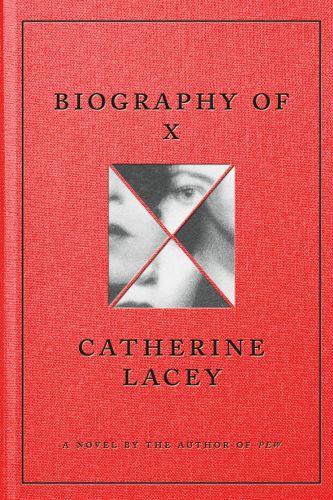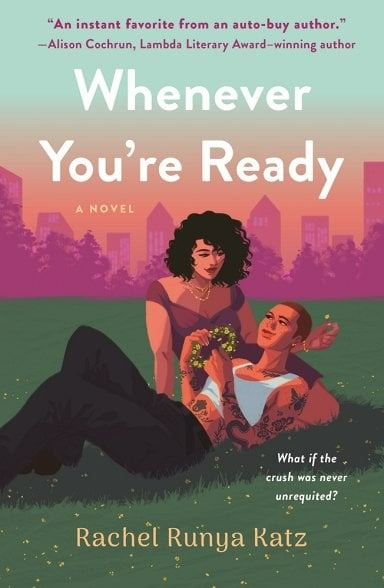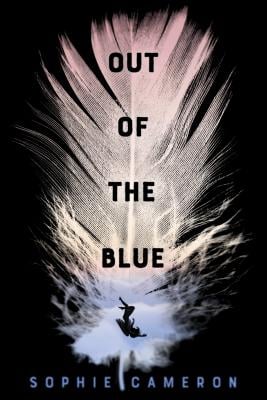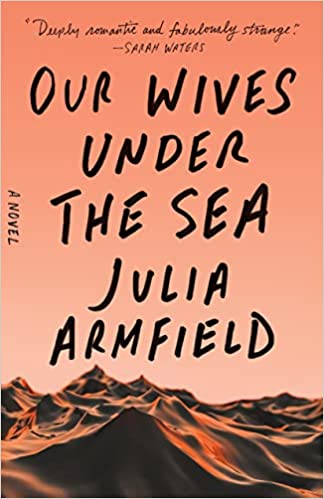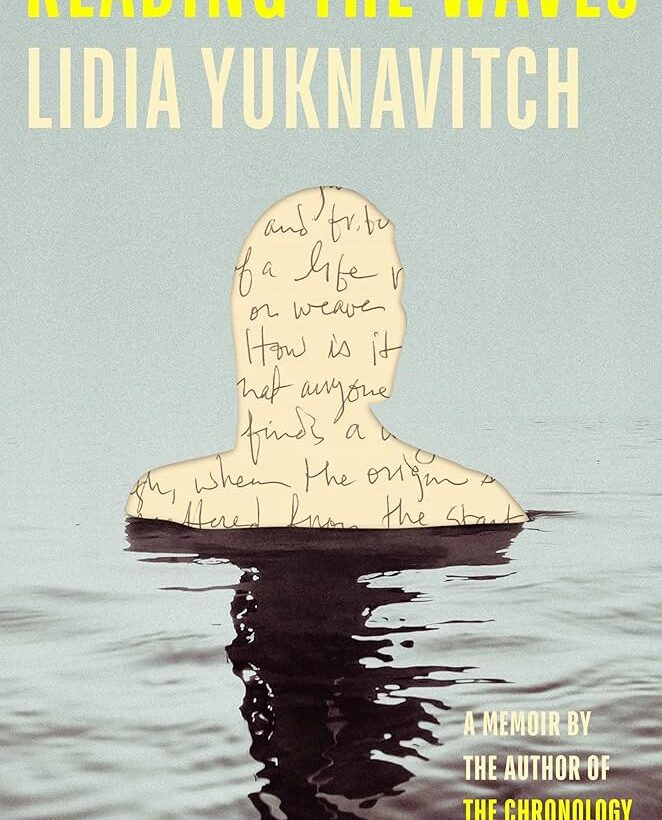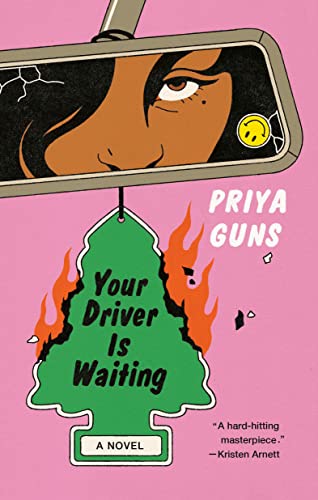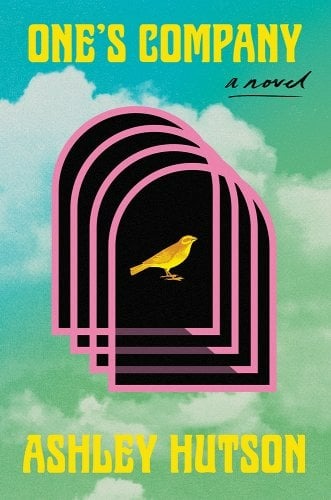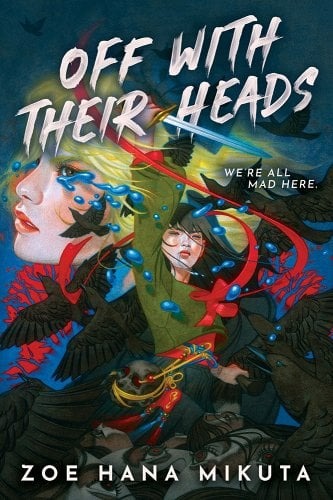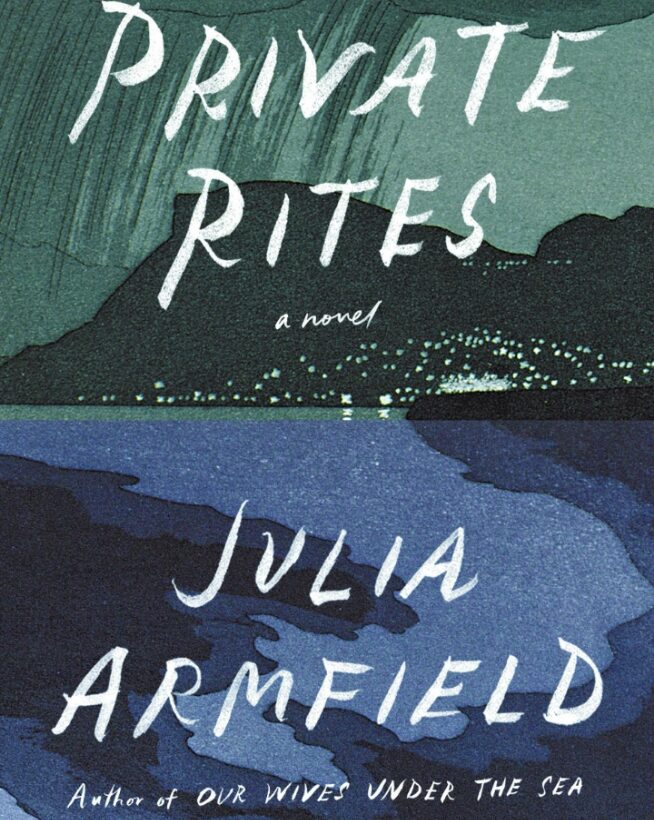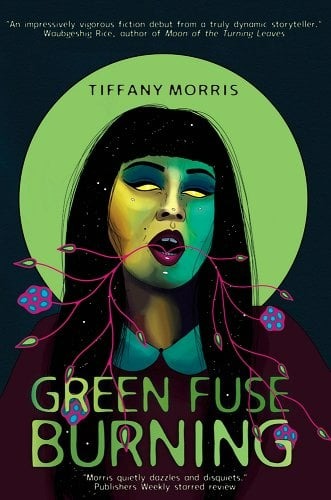In what has quickly become one of my favourite novels of all time, Catherine Lacey’s Biography of X (Picador 2023) reveals a circuitous tale of a woman’s life and an alternate history of the United States that was consuming, compelling, and thrilling to read. When a woman known only as X—a performance artist, author, and infamous socialRead More
A Sentimental Romance That Takes You for a Ride: Whenever You’re Ready by Rachel Runya Katz Review
Despite not reading reviews about Whenever You’re Ready by Rachel Runya Katz, I set my expectations high for this contemporary romance. Estranged childhood friends-to-lovers, a road trip, siblings, grief and healing, a dual timeline, and third person present tense? Maybe I have some specific selling points, but consider me sold.
Grief, Uncertainty, and Fallen Angels: Out of the Blue by Sophie Cameron Review
Jaya Mackenzie is grappling with the heavy weight of loss and confusion. Her mother has passed away, her ex-girlfriend disappeared without a trace, and the world is in chaos as angels fall from the sky at breakneck speeds, dying upon impact. Meanwhile, her father’s obsession with capturing one of these celestial beings pulls the familyRead More
Love, Grief, and the Abyssal Depths of the Ocean: Our Wives Under the Sea by Julia Armfield
There is a peculiar kind of sadness in telling a love story backwards, starting with its end. There’s the tenderness and domesticity of an established relationship, and the inevitable fact of its eventual nonexistence. This love story captures a relationship by chronicling its end. Our Wives Under the Sea, Julia Armfield’s debut novel, is a captivating tale told in alternating perspectives about a couple, Miri and Leah, the latter of whom goes out on a deep-sea exploration and comes back irrevocably changed. The book weaves Miri’s struggle to reconcile the slow slipping away of her wife, Leah, with Leah’s recounting of the events of the deep-sea submersible dive.
Memory as Storytelling: Reading the Waves by Lidia Yuknavitch Review
Chronology of Water by Lidia Yuknavitch has been on my to-read list for years; I’ve heard nothing but excellent things about that memoir. So, when I saw that she had new one out (that I could talk about on the All the Books podcast), I had to pick it up! Reading the Waves ended upRead More
A Ride You Won’t Forget: Your Driver is Waiting by Priya Guns Review
Your Driver is Waiting is a whirlwind debut that you should immediately add to your TBR. Engaging, timely, and compulsively readable, Priya Guns’ (she/her) writing style kept my attention from page 1 all the way through the acknowledgments. That’s no small feat. Guns charms readers with her portrayal of chaotic, yet lovable Damani Krishanthan, a Tamil,Read More
Grief, Obsession, and Isolation: One’s Company by Ashley Hutson Review
Content warning: this review includes discussion of suicide, violence, and rape. Ever since I heard the premise of One’s Company, it’s been on my TBR. So when I was choosing the first book to read in 2025, this seemed like the perfect kind of weird, thought-provoking literary fiction I was in the mood for—and itRead More
A Wicked Wonderland: Off With Their Heads by Zoe Hana Mikuta Review
It’s been five years since young witches and lovers Caro Rabbit and Iccadora Alice Sickle were both sentenced to Wonderland, the dark forest where monsters called Saints lurk, for a crime they didn’t commit. In the process of escaping, they break one another’s hearts. Now Icca will stop at nothing to exact her revenge onRead More
A Haunting Gothic About Family in (Climate) Crisis: Private Rites by Julia Armfield Review
As an avid reader of all of Julia Armfield’s fiction, I was eager to pick up her newest novel. From the author of Our Wives Under the Sea (2022), Private Rites (Fourth Estate, 2024) promised to be poignant, haunting, and literary. Set in a future world where environmental disaster has flooded much of the world with ceaseless rains, threeRead More
A Lush Horror Novella Embracing Death and Renewal: Green Fuse Burning by Tiffany Morris Review
“Why did people need to be in nature to process the things that happened to them? Maybe it was because what was thought of as wild did not require a veil—it saw you as you truly were: an animal skulking among animals.” Though I haven’t read a lot of horror, there is plenty of horrorRead More
- 1
- 2
- 3
- …
- 7
- Next Page »
